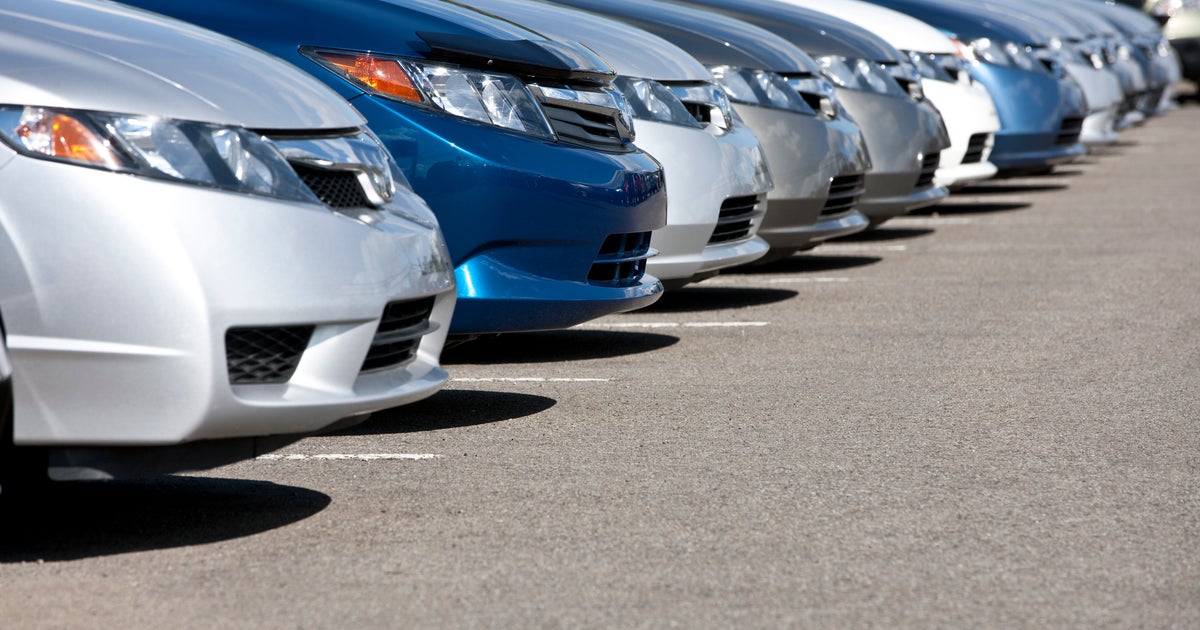The Trump administration’s recently announced tariffs on U.S. car imports will deal a serious blow to automakers, according to a new analysis that said the levies could lead to the sharpest decline in vehicle sales since the 2008 financial crisis and the 2020 COVID-19 pandemic.
If American tariffs on foreign cars remain in place, vehicle sales in the U.S. are projected to fall by 700,000 this year, S&P Global Mobility found. Auto production in North America is also expected to decrease by 1.28 million cars, the research firm estimated.
“The latest S&P report confirms what industry insiders and experts like us have been saying for months,” said Patrick Anderson, the founder of Anderson Economic Group, which has studied how the tariffs will impact the auto industry. “This level of tariffs will result in a significant drop in auto sales because the higher prices will directly affect the ability and willingness of consumers to buy cars.”
The Trump administration on March 26 announced 25% tariffs on imported vehicles and auto parts. Tariffs on passenger cars and light trucks imported into the U.S. kicked in on April 3, while White House officials have said a levy on imported auto parts is expected to be deployed by May 3.
Mr. Trump hinted on Monday that he might be willing to pull back on vehicle and auto part tariffs, saying that car makers “need a little bit of time” to relocate production from Canada, Mexico and elsewhere to the U.S.
For now, the Trump administration’s tariffs on light-vehicle imports remains in place. Nearly half of these vehicles sold in the U.S. are subject to those import duties, according to S&P Global Mobility.
For its part, Canada on Tuesday announced it is taking steps to cushion car manufacturers from the impact of higher U.S. tariffs. The Canadian finance ministry said automakers that make vehicles in the country may import a certain number of cars assembled in the U.S. tariff-free provided they comply with Canada’s free trade agreement with the U.S. and Mexico.
After the Trump administration’s levies on foreign cars hit on April 3, Canada imposed a 25% tariff on fully assembled vehicles imported into the country from the U.S. that don’t comply with the 2020 “United States-Mexico-Canada Agreement.”
Mr. Trump, who has made aggressive trade policies a cornerstone of his administration’s agenda, has said tariffs are necessary to protect U.S. workers, stimulate job growth, revive domestic manufacturing and generate federal revenue that would be used to offset his proposed tax cuts.
Shawn Fain, president of the United Auto Workers and a vocal critic of Mr. Trump during the 2024 election, has come out in support of the U.S. auto tariffs, saying they will end what he described as a “free trade disaster” for workers in the industry.
After Mr. Trump announced the auto tariffs in March, the UAW cheered the decision, calling the policy “long overdue” and a “major step in the right direction.” The union also said the stepped-up tariffs will bring thousands of blue-collar jobs back to the U.S.
The UAW did not respond to a request for comment.
Experts say vehicle tariffs are likely to drive up the price of imported cars and car parts, which could translate into higher costs for American consumers. Anderson Economic Group predicts the levies could increase vehicle costs between $2,500 and $4,500 for smaller models and up to $20,000 for certain imported luxury cars.
“Tariffs may be aimed at leveling the playing field, but in the short term they risk raising prices and limiting inventory,” said CarEdge CEO Zach Shefska. “We’re already seeing more consumers shift their focus to used cars, but that market is also strained. Thanks to the chip shortage and new car production slowdown in 2020 and 2021, used vehicle supply is historically low.”
Production cuts sparked by the auto tariffs could lead to layoffs in states like Illinois, Michigan and Ohio, which serve as major automotive manufacturing hubs, Anderson said. Stellantis, which owns Chrysler, Dodge, Jeep and Ram, said earlier this month that it would temporarily pause production at plants in Canada and Mexico, while furloughing 900 workers.
Car prices have soared since the pandemic because of supply-chain snags and the ferocious inflation that took hold in the U.S. in 2022 as the economy began to recover. Kelley Blue Book estimates average car prices are about $10,0000 higher today than before the pandemic.
In addition to the 25% auto tariffs, Mr. Trump earlier this year slapped separate 25% tariffs on steel and aluminum starting on March 12, a headache for automakers that import those materials.




